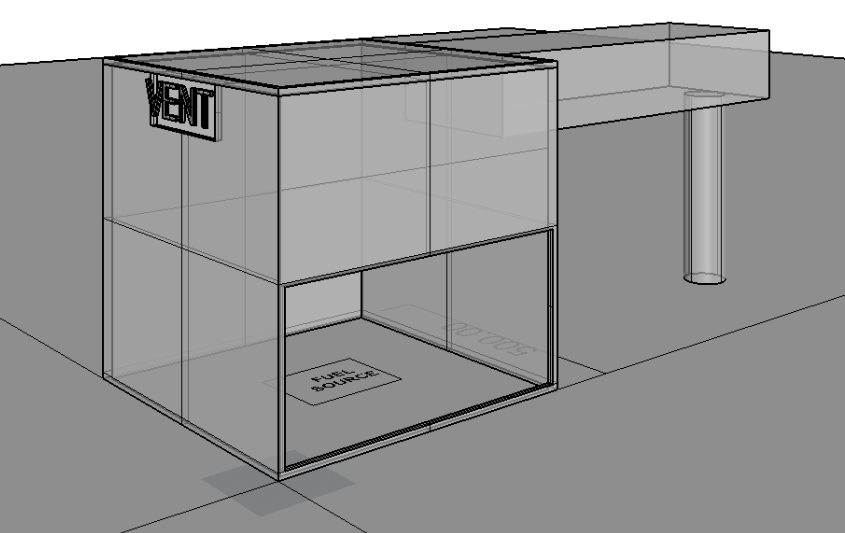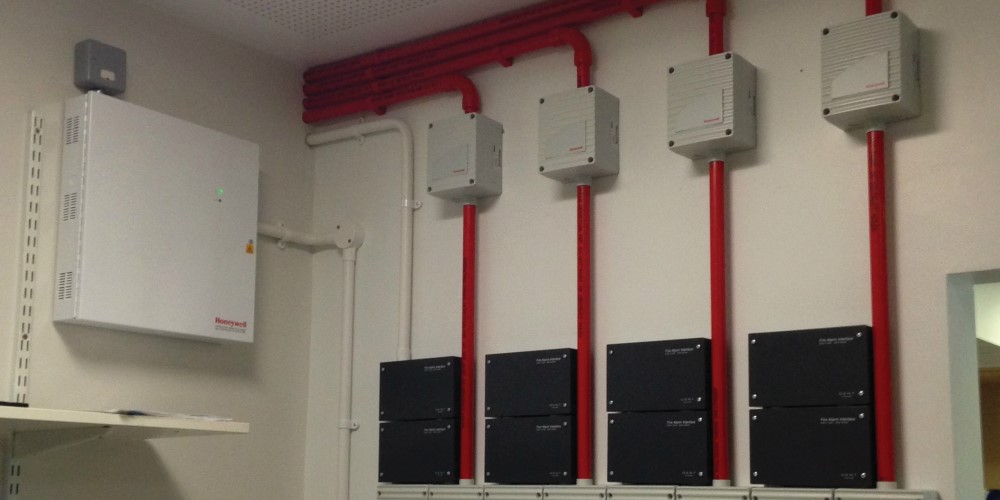Methodology of Smoke Detection System Circuit Diagram Before embarking on the design of a life safety smoke detection system, plant engineers should review applicable safety standards, which can provide the backbone of a plan to help ensure continuous safe operation of plant processes. Fire protection requirements are legislated and subject to a myriad of international codes and standards that address Ionization smoke detectors work by using a radiation source (usually Americium-241) to ionize the air. When air enters the smoke detector, the radiation source splits the air molecules into positive and negative ions. The ionization chamber in the smoke detector includes positive and negative electrodes, which are the chamber and

Before embarking on the design of a hazardous-area smoke detection system, plant engineers should review applicable standards such as NFPA 92, which covers the design, installation, operation and testing of smoke control systems. To be effective, smoke detectors in these systems should be located and spaced in anticipation of airflow from When designing smoke control systems, the 2015 edition of NFPA 92: Standard for Smoke Control Systems is a standard you need to know. Historically, HVAC engineers designed these systems using spreadsheets and the prescriptive calculations in the building codes. This resulted in oversized systems having a major impact on construction costs and the building architecture, as well as unpredictable

Best practices for designing smoke control systems Circuit Diagram
Incorporate advanced smoke detection systems that can promptly identify smoke and activate the smoke management systems. This includes using multi-sensor detectors that can distinguish between different types of smoke and reduce false alarms. 4. Evacuation Routes and Areas. Design the smoke management system to protect designated evacuation Activation is generally initiated in response to a smoke detector or a water-flow-switch activation. Special design consideration is warranted where smoke stratification can occur, such as within tall atrium spaces. Upward-facing beam-type smoke detectors or detection at multiple elevations within the space can be used.

Figure 9: Light Obscuration Detector with Smoke Smoke Detector Design Considerations Although smoke detectors are based on simple concepts, certain design considerations need to be observed. They should produce an alarm signal when smoke is detected, but should minimize the impact of an unwanted signal which can arise from a variety of causes. Seamless Integration: Smoke detectors should be connected to the commercial fire alarm system, ensuring that the activation of any smoke detector triggers the alarm system. This integration helps alert all building occupants simultaneously and can automatically notify the fire department.

Commercial Smoke Detectors Guide Circuit Diagram
Types of Commercial Smoke Detectors: Smoke detectors come in various types, including ionization, photoelectric, and combination models. Each has different detection methods suited to specific environments. Placement and Sensitivity: Correct placement and adjusting sensitivity levels are crucial for avoiding false alarms and ensuring quick response to real fire threats.

The 2018 edition of NFPA 92: Standard for Smoke Control Systems provides guidance pertaining to the design, installation, acceptance testing, operation and ongoing periodic testing of smoke control systems. Since the inception of the NFPA Technical Committee on Smoke Management in 1985, there has been a steady evolution in the approaches, tools and implementation of smoke control systems in
